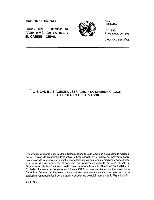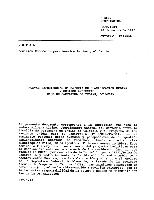Location
As a service provider in the field of international cooperation for sustainable development and international education work, we are dedicated to shaping a future worth living around the world. We have over 50 years of experience in a wide variety of areas, including economic development and employment promotion, energy and the environment, and peace and security. The diverse expertise of our federal enterprise is in demand around the globe – from the German Government, European Union institutions, the United Nations, the private sector, and governments of other countries. We work with businesses, civil society actors and research institutions, fostering successful interaction between development policy and other policy fields and areas of activity. Our main commissioning party is the German Federal Ministry for Economic Cooperation and Development (BMZ). The commissioning parties and cooperation partners all place their trust in GIZ, and we work with them to generate ideas for political, social and economic change, to develop these into concrete plans and to implement them. Since we are a public-benefit federal enterprise, German and European values are central to our work. Together with our partners in national governments worldwide and cooperation partners from the worlds of business, research and civil society, we work flexibly to deliver effective solutions that offer people better prospects and sustainably improve their living conditions.
Members:
Resources
Displaying 316 - 320 of 337Las cadenas agroindustriales y la diversificación agrícola en El Salvador
Proyecto sobre Promoción de la Integración Social y Económica de los Pequeños y Medianos Agricultores a la Agroindustria
Pequeña agricultura y agroindustria en el Perú
Proyecto sobre Promoción de la Integración Social y Económica de los Pequeños y Medianos Agricultores a la Agroindustria
Nuevas experiencias en materia de planificación urbana y gestión ambiental: el caso de Cartagena de Indias, Colombia
Seminario Regional sobre Avances y Perspectivas de la Gestión Ambientalmente Adecuada de los Residuos Urbanos e Industriales
South Africa - Operationalizing Community-Driven Multiple-Use Water Services Project
General
The Operationalizing Community-Driven Multiple-Use Water Services is initiated to increase levels of investments in multiple-use water services (MUS) . The project will also contribute to increased annual rates of Gross Domestic Produc (GDP) growth (3.0% per annum by 2020) and achievement of the national target for creating jobs for 300,000 households in agricultural smallholder schemes. Its impact will be improved income generation and community health in poor rural and peri-urban communities in South Africa. This project will be implemented for a total duration of 48 months and its total cost is estimated at € 1,745,059, of which the AWF will finance € 1,340,000 (77%). The Project will deliver three (3) key outcomes: (i) optimized water resources development and management for improved service delivery; (ii) improved local water use planning and management; and (iii) increased investments in improved community water services delivery.
Objectives
The purpose of the project is to support the operationalization of Multiple-Use Water Services (MUS) services in the Republic of South Africa (RSA) through demonstration investments, awareness raising, applied research and leveraging of finance.
Target Groups
The direct beneficiaries of the project include (i) households and local communities in Sekhukhune District and Vhembe District; (ii) local government and district government agencies benefiting from planning support and prepared planning tools and manuals, and (iii) national water sector policy makers and government agencies (Department of Cooperative Government and Traditional Affairs, Department of Water Affairs, Department of Agriculture and Forestry, Department of Rural Development and Land Reform; Department of Human Settlement; Department of Public Works; South African Association of Local Authority).
Living Landscapes - Securing ecological connectivity of high conservation value areas in Bhutan
General
In southwestern Bhutan special biodiversity and ecosystem services worthy of protection exist (High Conservation Value Areas), which are, however, without any formal protection status. For their long-term protection at national, regional and local level, they should be considered as an integral part of comprehensive land use planning as well as in management plans of the District Forestry Offices. In addition to building up knowledge and capacities within the forest administrations, the project also provides them with technical equipment to monitor and implement the management plans. It also supports local communities in reducing human-wildlife-conflicts, securing water resources and developing business plans to generate additional income. The development of guidelines, pilot projects and the exchange of experience between districts and authorities are intended to enable multiplier effects in other landscapes and districts.





